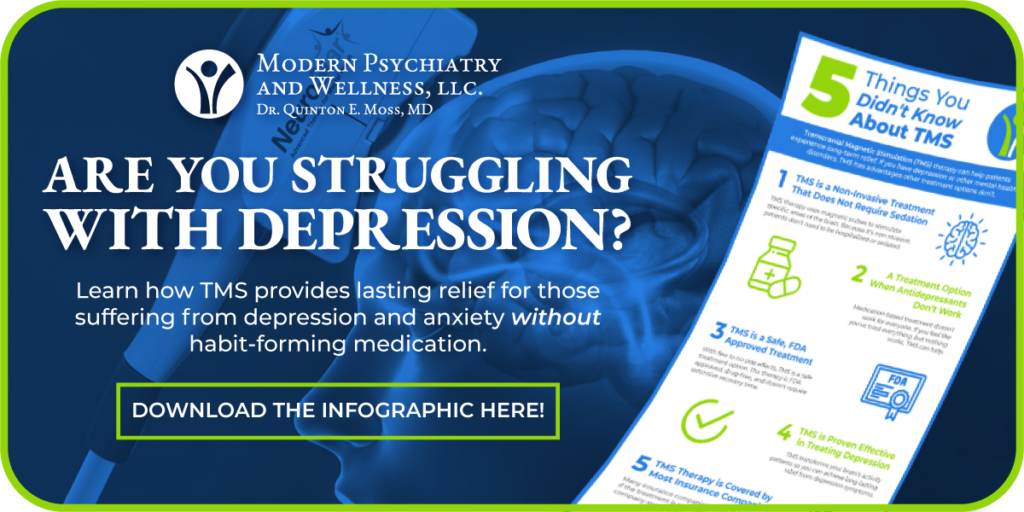Mental health challenges such as depression, anxiety, and post-traumatic stress disorder affect millions of people around the world. According to NAMI statistics, over 43.8 million adults experience mental illness every year. Fortunately, there are many treatment options available. One increasingly popular method is Cognitive Behavioral Therapy (CBT). What is Cognitive Behavior Therapy and how can it alleviate your or a loved one’s mental health challenge? In today’s blog, we’ll walk you through it.
Learn to Overcome Your Worries and Anxiety with our eBook
What is Cognitive Behavioral Therapy and What Does it Treat?
CBT is a form of psychotherapy designed to help you overcome negative thought patterns and behaviors that contribute to your mental health. See, all your thoughts, emotions, and behaviors are interconnected. By changing one, you can change the others. This therapy uses various methods, including cognitive restructuring, exposure therapy, and relaxation techniques, to help you manage your symptoms.
This treatment can be used for a variety of mental health conditions including depression, anxiety, post-traumatic stress disorder, obsessive-compulsive disorder, eating disorders, and substance abuse disorders. Also, CBT can be used to treat sleep disorders and specific phobias (such as fear of heights).
CBT is usually a short-term therapy—often ranging from 5 to 20 sessions.

CBT is a proven treatment for those suffering from PTSD.
How Does it Work?
At the beginning of therapy, you’ll have a discussion with your therapist about your difficulties, your symptoms, and any concerns you may have. Your therapist may ask you questions based on your situation, such as past experiences, fears or phobias, troubling behaviors, and your thoughts and feelings. Together, you’ll explore your answers to gain insight into how you respond to challenges in your life.
Through interactive sessions, your therapist will help you identify problematic thoughts and behaviors and encourage you to pay attention to your responses to difficult situations. Together, you and your therapist will identify unhealthy emotions, beliefs, or behaviors that may be contributing to your difficulties.
Your therapist will help you moderate your thoughts and behaviors and assist you in changing negative emotions, thoughts, and habits. By adopting positive thought patterns and behaviors, you can change your outlook and apply these skills to future situations. Eventually, you’ll be able to teach yourself coping skills and manage your symptoms in the long term.
The Importance of Cognitive Behavioral Therapy
CBT is a highly effective form of therapy that addresses a range of mental health challenges. If you are struggling with mental health, CBT can help you gain a better understanding of your thoughts and behaviors, so you control your mental wellness. To learn more about our treatment options and which one is right for you, take a look at Modern Psych’s services and contact us to get started.


